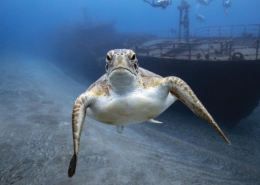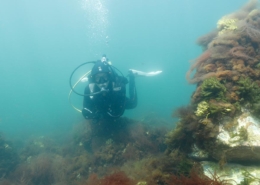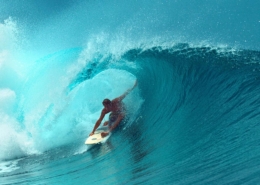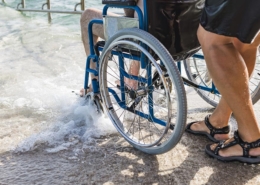Are You Ready for Your Next Course?
By Jesse Iacono
Nothing matches the excitement of taking a new scuba course to explore new skills, equipment, and environments. It isn’t hard to see why many divers want to take as many courses as quickly as possible. The hardest part of approaching advanced training is not WHICH course to take next, but WHEN you are ready to take it. Whether you are newly open-water certified or moving through the ranks of technical diving, keep the following information in mind to ensure you get the most out of every course you take.
When it comes to taking things to the next level, we can break down a diver’s readiness into two categories: physical readiness and mental readiness. Showing both the attention they deserve will not only guarantee you a better time in your course but also reduce any unnecessary risk.
Physical Readiness
Physical readiness refers to mastering the skills and equipment at your current level before moving forward. Every course you take will build on the fundamental diving skills you have learned in previous courses, and instructors have the right to ask you to demonstrate proficiency in skills from previous courses before beginning theirs. If you have not taken the time to build muscle memory and turn your skills into second-nature responses, then you are almost certain to struggle with any new skills or equipment thrown on top of that.
Does this mean you can’t take another course until you are a guru of every single scuba skill? No, of course not! But it does mean that you need to be comfortable enough with your current skill set to perform familiar skills in new environments (or equipment) and also learn more complex skills that build on those learned previously.
Let’s take a look at a few situations where this comes into play.
- An Open Water Scuba Diver wants to take a night diving course but has not taken the time to solidify buoyancy and regulator recovery skills. Are they setting themselves up for an appropriate response when a “normal” issue, such as a regulator getting knocked out or a shift in buoyancy, happens in the darkness?
- A Rescue Diver wants to take a drift diving course in Mexico. They have lots of dives, but all have been conducted from shore and no deeper than 40 feet. Should the diver move directly to a course that likely involves a previous understanding of diving to deeper depths and diving off a boat?
- A newly certified Advanced Nitrox Diver or Decompression Procedures Diver wants to take a Trimix course. If they have not spent time becoming familiar with managing their deco cylinder and performing gas switches, are they likely to succeed when a second deco cylinder is added and multiple gas switches must be made?
As you can see, some situations are pretty clear as to whether a diver is physically ready to participate in a particular course or not. Others may not be so obvious. There isn’t always a linear progression of courses and we can tend to get hung up on titles, assuming that earning a certain rating insinuates a general level of overall competency and ability. You need to look at each course you have taken and acknowledge which specific skills they have developed. Once this is done, a diver can accurately determine whether they have the required skill set to move onto their next desired learning venture.
Mental Readiness
Mental readiness refers to an internal level of comfort and understanding that must be developed before moving forward. This is not as simple as demonstrating proficiency at performing a skill. There are clues that instructors can pick up on to evaluate your mental readiness but, at the end of the day, it is something that only you truly know, and it will certainly expose itself during training if you do not approach it honestly.
Mental readiness develops over time with experience in the water and will strengthen alongside your physical readiness. It will vary from person to person – while one buddy may be entirely comfortable several dives after certification, another may take dozens of dives to feel the same way. Development can be impacted by a variety of contributing factors unique to each person.
You should think of mental readiness as a balance of:
- Feeling comfortable enough diving at your current level to be able to move into a new environment or skill set without becoming entirely overwhelmed or panicking.
- Understanding the intent of your previous skills enough to adapt to unique challenges that arise and apply them to different environments or types of diving.
Again, let’s look at a couple situations where this comes into play.
- An Open Water Scuba Diver performs well and is very comfortable diving in their local shallow-water dive site. When they dive off the boat, they feel very nervous and uneasy during the descent and ascent when they cannot clearly reference the bottom. Are they ready to enroll in a course that exposes them to deeper diving?
- A Cavern Diver can perform all skills proficiently but frequently swims away from their buddy and the line. They write it off as no big deal because it is only a cavern and you can’t get “that lost.” Is this diver ready to enter a cave course where they will go beyond the cavern zone and lose sight of the exit?
Mental readiness is tricky because the diver that lacks it is often unaware that they do, or they don’t realize the implications for more advanced diving. Developing a continuous self-evaluation strategy early on is key to help ensure readiness when moving forward.
Continuing education is something that every diver should participate in, but not before they have honestly assessed their readiness to do so. The combination of mental and physical readiness helps us to be our best diver self and maximize the opportunity for fun in the aquatic environment. The point of taking courses is to expose yourself in a controlled manner to new things that may make you a bit uncomfortable but will unlock more diving possibilities. Mistakes are going to be made and learning is going to happen. Consider what is involved in the next course you desire to take and be sure to give extra practice to the skills most relevant to it, so it is the new material you are focusing on learning and not the old.










发表评论
想加入讨论吗?请发表您宝贵的意见!